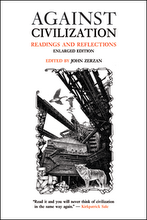Foreword
The thing I admire about Chicano village life in New Mexico is that beneath the sleek overlay of trucks and telephones lies the still-vital infrastructure of an ancient and, until recently, undisturbed way of life. Men hunt elk and turkey. Women know plants. Curandera-healers with their potent prophetic powers live among us. Everyone knows how to build a mud house, dig the irrigation ditch, grow corn, ride a horse, and navigate through the forest on a moon-lit night. And despite the raging poverty that universally flattens land-based communities when they are conquered, colonized, and consumed, there is more happiness here than in any place I have known. Its a simple happiness, nothing fancy, a here-and- now contentment: a story told at the gas pump, an invitation to go fishing, a twist of language that illuminates the irony of history. Living here, I have learned not to contemplate a trip to the dump or village store without carrying with me an extra twenty minutes, or an hour, to give and receive.
Such experiences reinforce what, after decades of research and dozens of social-change movements, I have long suspected. That it is not just contemporary industrial society that is dysfunctional; it is civilization itself. That we humans are born to be creatures of the land and the sea and the stars; that we are relations to the animals, cohorts to the plants. And that our well-being, and the well-being of the very planet, depend on our pursuance of our given place within the natural world.
It is against these musings that I celebrate the coming of John Zerzan’s accomplishment of an anthology harboting the best of civilized people’s critiques of civilization. Herein the reader will discover the questions that need to be asked and the insights that beg to be nurtured if humankind and the natural world as we know it are to thrive into the future.
This bok is that important.
Such experiences reinforce what, after decades of research and dozens of social-change movements, I have long suspected. That it is not just contemporary industrial society that is dysfunctional; it is civilization itself. That we humans are born to be creatures of the land and the sea and the stars; that we are relations to the animals, cohorts to the plants. And that our well-being, and the well-being of the very planet, depend on our pursuance of our given place within the natural world.
It is against these musings that I celebrate the coming of John Zerzan’s accomplishment of an anthology harboting the best of civilized people’s critiques of civilization. Herein the reader will discover the questions that need to be asked and the insights that beg to be nurtured if humankind and the natural world as we know it are to thrive into the future.
This bok is that important.
- Chellis Glendinning
Chinayó, New Mexico
26. Júl 1998
Chinayó, New Mexico
26. Júl 1998
Predslov
Vec, ktorú obdivujem na Chicanskom dedinskom živote v Novom Mexiku je, že pod uhladeným povlakom kamiónov a telefónov leží ešte stále živá infraštruktúra prastarého a, až do nedávna, nedotknutého spôsobu života. Muži lovia losov a moriakov. Ženy poznajú rastliny. Liečitelia Curandera žijú medzi nami s ich účinnými vešteckými silami. Každý vie ako si postaviť hlinený dom, zavlažovaciu priekopu, ako pestovať kukuricu, ako jazdiť na koni a navigovať cez les počas mesačnej noci. A napriek strašnej chudobe, ktorá všeobecne postihuje komunity závislé od zeme, keď sú dobité, kolonizované a skonzumované, je tu viac spokojnosti než som videla hocikde inde. Je to jednoduchá spokojnosť, nič prehnané, spokojnosť tu-a-teraz: príbeh vyrozprávaný na benzínovej pumpe, pozvanie na rybačku, prekrútenie reči, ktorá osvetľuje iróniu histórie. Keď som tu bývala, tak som sa naučila nezvažovať cestu na smetisko alebo do dedinského obchodíku bez toho, aby som so sebou neniesla dvadsať minút alebo hodinu navyše, dávať a prijímať.Takéto skúsenosti posilňujú po dekádach výskumu a tuctoch hnutí za sociálnu zmenu
to, čo som si myslela už dávno. Že to nie je len súčasná priemyselná spoločnosť, ktorá je nefunkčná; je to civilizácia sama. Že my ľudia sme sa narodili, aby sme boli bytosťami zeme a mora a hviezd; že sme príbuzný zvieratám, spriaznený s rastlinami. A že naše blaho a blaho samej planéty závisí od nášho pokračovania v našom danom mieste v rámci prírodného sveta.
V tomto uvažovaní oslavujem príchod antológie Johna Zerzana zaoberajúcej sa najlepšími kritikami civilizácie od civilizovaných ľudí. Tu čitateľ nájde otázky, ktoré musia byť položené a preniknutia do podstaty veci, ktoré žiadajú o to, aby boli ďalej rozvíjané, ak ľudstvo a prírodný svet ako ich poznáme majú prekvitať do budúcnosti.
Táto kniha je takto dôležitá.
- Chellis Glendinning
Chinayó, New Mexico
26. Júl 1998
Chinayó, New Mexico
26. Júl 1998








1 comments:
Ahoj, také právě dočítám tuto úžasnou knihu, která odpověděla na mnoho otázek, které mě docela dlouho trápily. Také jsem měla stejný nápad jako ty - založit o ní blog. Ale už jsi mě předběhl:) Nechceš spolupracovat, nebo už nepokračuješ? Měl jsi nějaké odezvy?
Zdravím Tě srdečně, Romana
Post a Comment